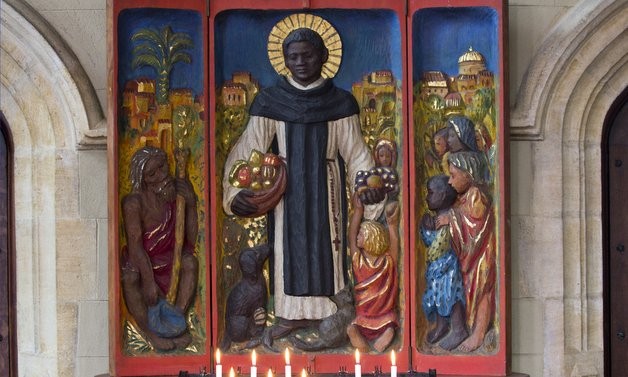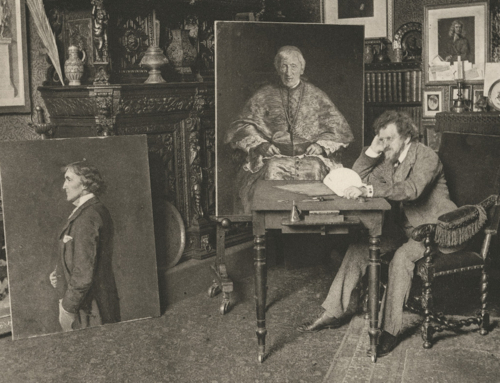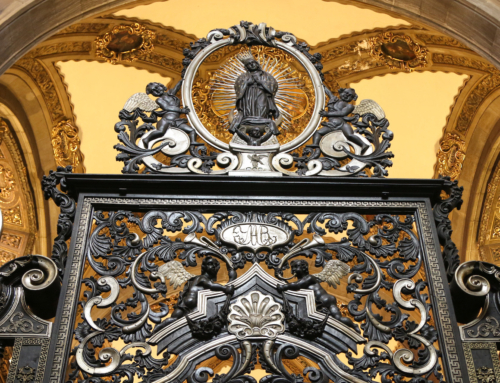“Martin, son of an unknown father.” Thus reads the baptismal registry for St. Martin de Porres, capturing the rejection Martin suffered from his earthly father, but even more, pointing to the adoption Martin received from his heavenly Father—the very grace of Baptism. “Though father and mother forsake me, the Lord will receive me” (Ps 27:10).
This divine adoption is the key to St. Martin’s life—not only to understanding his life, but also to imitating it. We can see this in three ways: his miracles, his virtues, and his prayer.
For many, St. Martin is known for his miracles. He talked to animals, healed the sick, read peoples’ souls, and even bi-located. As a biography, these miracles dazzle with a certain saintly pizazz, but as a model for holiness, they seem far beyond us and perhaps even discouraging. If we can’t perform miracles, why bother with St. Martin?
It would be misleading to define St. Martin merely as a wonder-worker. At heart, Martin is an adopted son working with the grace of God. He did not work miracles for his own glory or according to his own will; rather it was God’s work, God’s glory, God’s will. The grace of working miracles is rare, but the grace of divine adoption is given to all the baptized. Miracles may be beyond us, but to be God’s child and to seek His will, this is possible for all Christians.
This dynamic holds true for St. Martin’s virtues. Again, he provides an impressive example: he humbly obeyed superiors, bore the insults of his confreres, worked tirelessly for the poor, brought peace to the divided, and inspired holiness in his neighbors. Altogether, his virtues tower over the good that most Christians can do.
As with his miracles, though, Martin’s virtues flow from his divine adoption. He is a branch grafted onto the vine of Christ, in the care of the Father (see Jn 15:1-5). The Father cultivates and prunes each of us so that we might bear the fruit of Christian virtues. Some bear great watermelons, others bear tiny blueberries. The fruit is God’s. Our concern is to be His child.
Finally, behind all the miracles and virtues is the prayer of St. Martin. He spent his nights in vigils, adoring the Eucharist and contemplating the Crucifix, often giving way to ecstasy and even levitation. During the day, he would interweave his work with prayer, interiorly uniting Martha and Mary. And to his prayer, he added austere fasting and penances. Again he’s impressive, but tough to imitate.
But Martin’s prayer was simply the lived intimacy of an adopted son with the Father, and this intimacy is extended to all the faithful. Jesus himself invited us to pray this way, teaching us the invaluable words: “Our Father, who art in heaven…”
Today, let us take St. Martin as our model. May he guide us in living the grace of God’s adopted children, and may his great life—his miracles, virtues, and prayer—inspire us to let the Father do great things through us.
✠
Image: Fr. Lawrence Lew, O.P., St. Martin de Porres, O.P. (used with permission)







